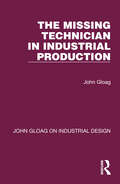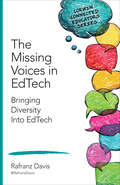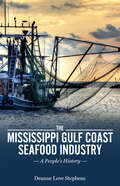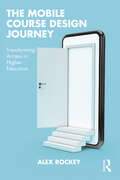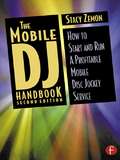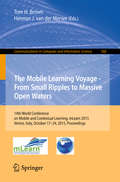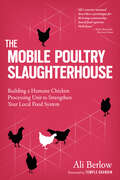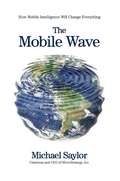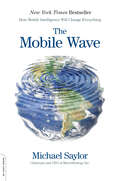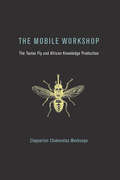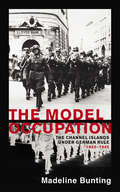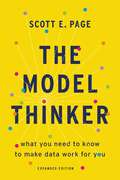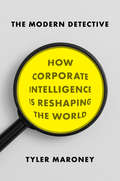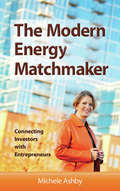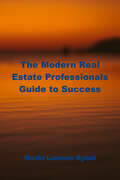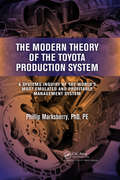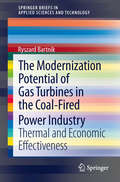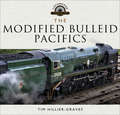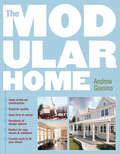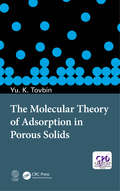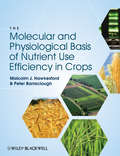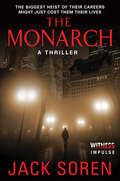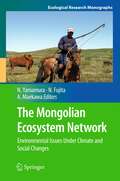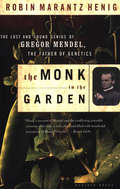- Table View
- List View
The Missing Technician in Industrial Production (John Gloag On Industrial Design Ser.)
by John GloagOriginally published in 1944, The Missing Technician shows how Industrial Design must begin at the very first stages of planning a product. The procedure of a design research committee is outlined – a type of practical co-ordination of the work of industrial designers and production technicians which proved highly effective. The value of materials like aluminium and plastic are emphasized, but equally the importance of glass and cast iron is stressed, especially when handled in new ways that 20th Century techniques made possible.
The Missing Voices in EdTech: Bringing Diversity Into EdTech (Corwin Connected Educators Series)
by Rafranz DavisMaking tech decisions from a diverse space starts here! This book offers leaders and teachers a reflective journey into diverse perspectives on technology as it is used and understood in our schools. Through step-by-step strategies and powerful vignettes, Rafranz Davis explores the deep impact inclusive EdTech conversations can have for teachers, students, women, and people of color. Educators learn practical, step-by-step solutions to: Engage students and give them a voice Cultivate diverse teacher feedback Encourage EdTech leadership for women and people of color Includes real-life stories from educators. Transform the EdTech landscape and create lasting change with this one-of-a-kind book! The Corwin Connected Educators series is your key to unlocking the greatest resource available to all educators: other educators. Being a Connected Educator is more than a set of actions: it’s a belief in the potential of technology to fuel lifelong learning. "Davis’s book is both a guide for administrators and edtech leaders seeking to better support student and teacher voices and an important testimony to the power of voices willing to raise the tough questions." —Carolyn Foote, Digital Librarian Westlake High School, Austin, Texas "Davis powerfully addresses the human side of technology integration. She moves teachers and school leadership with her passion, while offering real solutions to the issues that arise when integrating technology. Her solutions and ideas focus on improving the discourse between teachers, students, and leadership so that they all work collaboratively in enhancing the learning environment. She also addresses ways we can encourage women and minorities to take leadership roles in the field of education technology." —Shelly Sanchez Terrell Author/Founder of The 30 Goals Challenge for Teachers
The Missing Voices in EdTech: Bringing Diversity Into EdTech (Corwin Connected Educators Series)
by Rafranz DavisMaking tech decisions from a diverse space starts here! This book offers leaders and teachers a reflective journey into diverse perspectives on technology as it is used and understood in our schools. Through step-by-step strategies and powerful vignettes, Rafranz Davis explores the deep impact inclusive EdTech conversations can have for teachers, students, women, and people of color. Educators learn practical, step-by-step solutions to: Engage students and give them a voice Cultivate diverse teacher feedback Encourage EdTech leadership for women and people of color Includes real-life stories from educators. Transform the EdTech landscape and create lasting change with this one-of-a-kind book! The Corwin Connected Educators series is your key to unlocking the greatest resource available to all educators: other educators. Being a Connected Educator is more than a set of actions: it’s a belief in the potential of technology to fuel lifelong learning. "Davis’s book is both a guide for administrators and edtech leaders seeking to better support student and teacher voices and an important testimony to the power of voices willing to raise the tough questions." —Carolyn Foote, Digital Librarian Westlake High School, Austin, Texas "Davis powerfully addresses the human side of technology integration. She moves teachers and school leadership with her passion, while offering real solutions to the issues that arise when integrating technology. Her solutions and ideas focus on improving the discourse between teachers, students, and leadership so that they all work collaboratively in enhancing the learning environment. She also addresses ways we can encourage women and minorities to take leadership roles in the field of education technology." —Shelly Sanchez Terrell Author/Founder of The 30 Goals Challenge for Teachers
The Mississippi Gulf Coast Seafood Industry: A People's History (America's Third Coast Series)
by Deanne Love StephensThe seafood industry on the coast of Mississippi has attracted waves of immigrants and other workers—oftentimes folks who were either already acquainted with maritime livelihoods or those who quickly adapted to the resources of the region. For generations the industry has provided employment and sustenance to Coast peoples. Deanne Love Stephens tells their stories and identifies key populations who have worked this harvest. Oyster and shrimp processing were the most significant of these trades, and much of the Gulf Coast's history follows these two delicacies. Harvesting, processing, and marketing oyster and shrimp products built the Mississippi seafood industry and powered the growth of the entire coastal region. This book is the first to offer a broad view of the many ethnic groups and distinct populations who toiled in the oyster and shrimp industries. Relying heavily upon contemporary newspapers, oral histories, and interviews to create a rich picture of the industry and its workers, the author presents the history of laboring people who daily toiled in factories and often went unheard and unrecognized. Stephens provides an overview of significant early developments and the beginnings of the industry, considering the development of railroad expansion, lighthouse construction, and ice technology. She covers significant state and federal legislation that both defined and protected marine resources, illustrating the depth of the industry’s importance as Mississippians wrestled with adequate protective measures to preserve oyster and shrimp resources throughout the nineteenth and twentieth centuries.
The Mobile Course Design Journey: Transforming Access in Higher Education
by Alex RockeyThe Mobile Course Design Journey provides practical strategies to college and university educators and faculty support professionals looking to develop accessible mobile learning experiences. Given the near-ubiquity of mobile device ownership today, creating courses that can be completed entirely on a mobile device is essential to captivating student attention and supporting equity-minded pedagogy. This book frames effective mobile design within a continuum in which educators can make gradual yet meaningful changes to their instruction and course content while leveraging learners’ existing tools and literacies. Original, ready-to-use features such as a rubric for evaluating the mobile-friendliness of course content and assignments as well as a toolkit for leading workshops on mobile design will further help to demystify mobile learning in higher education.
The Mobile DJ Handbook: How to Start & Run a Profitable Mobile Disc Jockey Service
by Stacy ZemonThe Mobile DJ Handbook, Second Edition continues to be an excellent guide for novice and experienced DJs looking to build a successful career as the owner-operator of a mobile disc jockey service. Complete with practical tips, expert advice, and creative strategies, this book serves as the perfect guide on how to market and sell your services as well as develop and expand your business. This book contains information on becoming a professional, securing bookings, buying equipment and music, and running party dances, contests, and games. Included within the text are sample contracts, an advertisement and brochure, and resource information. The Mobile DJ Handbook is an essential reference guide which offers readers all the knowledge and inspiration needed to run a profitable enterprise.
The Mobile Learning Voyage - From Small Ripples to Massive Open Waters
by Tom H. Brown Herman J. MerweThis book constitutes the proceedings of the 14th InternationalConference on Mobile and Contextual Learning, mLearn 2015, held in a cruiseship leaving from and arriving to Venice, Italy, in October 2015. The 22 revised full papersand 6 short papers presented were carefully reviewed and selected from 81submissions. The papers deal with the topics related to the theme of theconference: "The mobile learning voyage: from small ripples to massiveopen waters". The conference theme paid tribute to the developmentsthat brought mobile learning from its infancy steps in the early 2000s tomaturity in 2015, while simultaneously paving the way for the broad andopen waters ahead with new developments and progress in mobile learning,and emerging ambient technologies.
The Mobile Poultry Slaughterhouse: Building a Humane Chicken-Processing Unit to Strengthen Your Local Food System
by Temple Grandin Ali BerlowIf you’re raising poultry for meat and lack easy access to a humane slaughterhouse, a mobile slaughter and processing unit may be the solution. <P><P>Ali Berlow shows you how to build a unit that accommodates all types of poultry and can easily be moved to any location, making it a great cooperative investment for a community of small-scale farmers. <P><P>Covering the mechanics of construction, sanitation, safety, and permitting processes, this guide shows you how a mobile slaughterhouse can make your poultry operation more self-sufficient.
The Mobile Wave
by Michael SaylorIn the tradition of international bestsellers, 'Future Shock' and 'Megatrends', Michael J. Saylor, CEO of MicroStrategy, brings 'The Mobile Wave', a ground-breaking analysis of the impact of mobile intelligence-the fifth wave of computer technology. 'The Mobile Wave' argues that the changes brought by mobile computing are so big and widespread that it's impossible for us to see it all, even though we are all immersed in it. Saylor explains that the current generation of mobile smart phones and tablet computers has set the stage to become the universal computing platform for the world. In the hands of billions of people and accessible anywhere and anytime, mobile computers are poised to become an appendage of the human being and an essential tool for modern life. With the perspective of a historian, the precision of a technologist, and the pragmatism of a CEO, Saylor provides a panoramic view of the future mobile world. He describes how: - A Harvard education will be available to anyone with the touch of a screen. - Cash will become virtual software and crime proof. - Cars, homes, fruit, animals, and more will be "tagged" so they can tell you about themselves. - Buying an item will be as easy as pointing our mobile device to scan and pay. - Land and capital will become more of a liability than an asset. - Social mobile media will push all businesses to think and act like software companies. - Employment will shift as more service-oriented jobs are automated by mobile software. Products, businesses, industries, economies, and even society will be altered forever as the Mobile wave washes over us and changes the landscape. With so much change, 'The Mobile Wave' is a guidebook for individuals, business leaders, and public figures who must navigate the new terrain as mobile intelligencechanges everything.
The Mobile Wave: How Mobile Intelligence Will Change Everything
by Michael SaylorIn the tradition of international bestsellers, Future Shock and Megatrends, Michael J. Saylor, CEO of MicroStrategy, brings The Mobile Wave, a ground-breaking analysis of the impact of mobile intelligence--the fifth wave of computer technology. The Mobile Wave argues that the changes brought by mobile computing are so big and widespread that it's impossible for us to see it all, even though we are all immersed in it. Saylor explains that the current generation of mobile smart phones and tablet computers has set the stage to become the universal computing platform for the world. In the hands of billions of people and accessible anywhere and anytime, mobile computers are poised to become an appendage of the human being and an essential tool for modern life. With the perspective of a historian, the precision of a technologist, and the pragmatism of a CEO, Saylor provides a panoramic view of the future mobile world. He describes how: A Harvard education will be available to anyone with the touch of a screen. Cash will become virtual software and crime proof. Cars, homes, fruit, animals, and more will be "tagged" so they can tell you about themselves. Buying an item will be as easy as pointing our mobile device to scan and pay. Land and capital will become more of a liability than an asset. Social mobile media will push all businesses to think and act like software companies. Employment will shift as more service-oriented jobs are automated by mobile software. Products, businesses, industries, economies, and even society will be altered forever as the Mobile wave washes over us and changes the landscape. With so much change, The Mobile Wave is a guidebook for individuals, business leaders, and public figures who must navigate the new terrain as mobile intelligence changes everything.
The Mobile Workshop: The Tsetse Fly and African Knowledge Production (The\mit Press Ser.)
by Clapperton Chakanets MavhungaHow the presence of the tsetse fly turned the African forest into an open laboratory where African knowledge formed the basis of colonial tsetse control policies.The tsetse fly is a pan-African insect that bites an infective forest animal and ingests blood filled with invisible parasites, which it carries and transmits into cattle and people as it bites them, leading to n'gana (animal trypanosomiasis) and sleeping sickness. In The Mobile Workshop, Clapperton Chakanetsa Mavhunga examines how the presence of the tsetse fly turned the forests of Zimbabwe and southern Africa into an open laboratory where African knowledge formed the basis of colonial tsetse control policies. He traces the pestiferous work that an indefatigable, mobile insect does through its movements, and the work done by humans to control it.Mavhunga's account restores the central role not just of African labor but of African intellect in the production of knowledge about the tsetse fly. He describes how European colonizers built on and beyond this knowledge toward destructive and toxic methods, including cutting down entire forests, forced “prophylactic” resettlement, massive destruction of wild animals, and extensive spraying of organochlorine pesticides. Throughout, Mavhunga uses African terms to describe the African experience, taking vernacular concepts as starting points in writing a narrative of ruzivo (knowledge) rather than viewing Africa through foreign keywords. The tsetse fly became a site of knowledge production—a mobile workshop of pestilence.
The Model Occupation: The Channel Islands Under German Rule, 1940-1945
by Madeleine Bunting‘A masterly work of profound research and reflection, objective and humane’ Hugh Trevor-Roper, Sunday TelegraphWhat would have happened if the Nazis had invaded Britain? How would the British people have responded – with resistance or collaboration? In Madeleine Bunting’s pioneering study, we begin to find the answers to this age-old question.Though rarely remembered today, the Nazis occupied the British Channel Islands for much of the Second World War. In piecing together the fragments left behind – from the love affairs between island women and German soldiers, the betrayals and black marketeering, to the individual acts of resistance – Madeleine Bunting has brought this uncomfortable episode of British history into full view with spellbinding clarity.
The Model Thinker: What You Need to Know to Make Data Work for You
by Scott E. PageHow anyone can become a data ninja From the stock market to genomics laboratories, census figures to marketing email blasts, we are awash with data. But as anyone who has ever opened up a spreadsheet packed with seemingly infinite lines of data knows, numbers aren't enough: we need to know how to make those numbers talk. In The Model Thinker, social scientist Scott E. Page shows us the mathematical, statistical, and computational models--from linear regression to random walks and far beyond--that can turn anyone into a genius. At the core of the book is Page's "many-model paradigm," which shows the reader how to apply multiple models to organize the data, leading to wiser choices, more accurate predictions, and more robust designs. The Model Thinker provides a toolkit for business people, students, scientists, pollsters, and bloggers to make them better, clearer thinkers, able to leverage data and information to their advantage.
The Modern Detective: How Corporate Intelligence Is Reshaping the World
by Tyler MaroneyA fascinating examination of the world of private investigators by a 21st-century private eye.Today's world is complicated: companies are becoming more powerful than nations, the lines between public and corporate institutions grow murkier, and the internet is shredding our privacy. To combat these onslaughts, people everywhere -- rich and not so rich, in business and in their personal lives -- are turning away from traditional police, lawyers, and government regulators toward a new champion: the private investigator.As a private investigator, Tyler Maroney has traveled the globe, overseeing sensitive investigations and untying complicated cases for a wide array of clients. In his new book, he shows that it's private eyes who today are being called upon to catch corrupt politicians, track down international embezzlers, and mine reams of data to reveal which CEOs are lying. The tools Maroney and other private investigators use are a mix of the traditional and the cutting edge, from old phone records to computer forensics to solid (and often inspired) street-level investigative work. The most useful assets private investigators have, Maroney has found, are their resourcefulness and their creativity.Each of the investigations Maroney explores in this book highlights an individual case and the people involved in it, and in each account he explains how the transgressors were caught and what lessons can be learned from it. Whether the clients are a Middle Eastern billionaire whose employees stole millions from him, the director of a private equity firm wanting a background check on a potential hire (a known convicted felon), or creditors of a wealthy American investor trying to recoup their money after he fled the country to avoid bankruptcy, all of them hired private investigators to solve problems the authorities either can't or won't touch. In an era when it's both easier and more difficult than ever to disappear after a crime is committed, it's the modern detective people are turning to for help, for revenge, and for justice.
The Modern Energy Matchmaker: Connecting Investors with Entrepreneurs
by Michele AshbyExplaining the trends and key words in the green energy movement, this book examines the idea of modern energy—a combination of old and new energy resources—and the costs involved in making them operational. Resources that include wind, solar, nuclear, wave, biofuels, biomass, smart grid technologies, magnetics, hydropower, oil, gas, and coal all need to be partnered with entrepreneurs to bring them to life. Fusing intellectual and financial resources can secure a modern energy-reliant future, and this proposal directs the world's investors to begin that partnership.
The Modern Real Estate Professionals Guide to Success: Building a Sustainable and Successful Real Estate Business in Today's World
by Marki Lemons RyhalThe real estate industry is a unique industry. You can earn a real estate license, but it will not teach you how to sell real estate. No one knows how to sell real estate as the result of attending real estate school. The only people who come into the real estate industry, and who know how to sell real estate, are generally going to be second or third-generation real estate professional who grew up in the business with parents who made them go to open houses and attend showing appointments. 98 percent of people who earn a real estate license have no idea what they've just gotten themselves into, and they believe that it is their broker's responsibility to provide them with leads. They do not know that real estate is about entrepreneurship and that the majority of those with a real estate license are independent contractors. If you want to engage in real estate, you should know that you will be an independent contractor, you will be an entrepreneur, and you will be responsible for generating revenue. If you want to make a million dollars, well, you need to know how to generate leads. Agents need to know how to operate their own business, and they need to develop a business plan based on the market they want to serve. It is your responsibility as an agent to keep up with any changes to the rules and regulations in the business. It's also your responsibility to educate yourself on the latest trends in your local community and the technology you can use to reach that community. This book will help.
The Modern Theory of the Toyota Production System: A Systems Inquiry of the World's Most Emulated and Profitable Management System
by Phillip MarksberryNumerous books have been written about Toyota's approach to workplace improvement; however, most describe Toyota's practices as case studies or stories. Designed to aid in the implementation of Lean manufacturing, The Modern Theory of the Toyota Production System: A Systems Inquiry of the Worlds Most Emulated and Profitable Management System expla
The Modernization Potential of Gas Turbines in the Coal-Fired Power Industry
by Ryszard BartnikThe opportunity of repowering the existing condensing power stations by means of gas turbogenerators offers an important opportunity to considerably improvement of their energy efficiency. The Modernization Potential of Gas turbines in the Coal-Fired Power Industry presents the methodology, calculation procedures and tools used to support enterprise planning for adapting power stations to dual-fuel gas-steam combined-cycle technologies. Both the conceptual and practical aspects of the conversion of existing coal-fired power plants is covered. Discussions of the feasibility, advantages and disadvantages and possible methods are supported by chapters presenting equations of energy efficiency for the conditions of repowering a power unit by installing a gas turbogenerator in a parallel system and the results of technical calculations involving the selection heating structures of heat recovery steam generators. A methodology for analyzing thermodynamic and economic effectiveness for the selection of a structure of the heat recovery steam generator for the repowered power unit is also explained. The Modernization Potential of Gas turbines in the Coal-Fired Power Industry is an informative monograph written for researchers, postgraduate students and policy makers in power engineering.
The Modified Bulleid Pacifics (Locomotive Portfolios)
by Tim Hillier-GravesThis British Railways history recounts the life of a controversial steam engine and its miraculous transformation at the hands of a brilliant engineer. As Chief Mechanical Engineer of the Southern Railway, Oliver Bulleid designed what were perhaps the most controversial steam locomotives ever built in Britain: the Pacifics. Loved and loathed in equal measure, the debate over their strengths and weaknesses took on a new dimension when British Railways decided to modify them in the 1950s. When noted engineer Ron Jarvis was charged with improving on Bulleid&’s designs, he displayed a master&’s touch, saving the best of Bulleid&’s work while incorporating other established design principles. What emerged was described by Bert Spencer, Gresley&’s talented assistant, as taking &‘a swan and creating a soaring eagle.&’ This book explores all the elements of the lives of these Pacifics and their two designers. It draws on previously unpublished material to describe their gradual evolution, which didn&’t start or finish with the 1950s major rebuilding program.
The Modular Home
by Andrew GianinoModular homes are the perfect solution if you want to build a high-quality, customized home without undue expense or hassle. In this informative guide, Andrew Gianino helps you make the best choices throughout the modular building process, with suggestions for everything from choosing the right dealer and contractor to setting the specs, price, and schedule. Whether you’re looking for a cozy Victorian or want to add a personal touch to a wide ranch, there’s a modular home that will fit your tastes, lifestyle, and budget.
The Molecular Theory of Adsorption in Porous Solids
by Yury Konstantinovich TovbinIn the adsorption phenomenon the substances from the external environment the gas or liquid are absorbed by a solid surface (adsorbent). Adsorption is used to separate gaseous and liquid mixtures, for drying and purification of gases and liquids. This reference broadly explores the calculation of the equilibrium and dynamic characteristics of adsorption in porous bodies at the molecular level. Two new theories of statistical physics are presented, both developed by the author for the consistent description of the equilibrium distribution of molecules and dynamics of flows in complex porous materials to be able to solve a wide range of practical tasks in the development of new technologies.
The Molecular and Physiological Basis of Nutrient Use Efficiency in Crops
by Malcolm J. Hawkesford Peter BarracloughEfforts to increase efficient nutrient use by crops are of growing importance as the global demand for food, fibre and fuel increases and competition for resources intensifies. The Molecular and Physiological Basis of Nutrient Use Efficiency in Crops provides both a timely summary of the latest advances in the field as well as anticipating directions for future research. The Molecular and Physiological Basis of Nutrient Use Efficiency in Crops bridges the gap between agronomic practice and molecular biology by linking underpinning molecular mechanisms to the physiological and agronomic aspects of crop yield. These chapters provide an understanding of molecular and physiological mechanisms that will allow researchers to continue to target and improve complex traits for crop improvement.Written by leading international researchers, The Molecular and Physiological Basis of Nutrient Use Efficiency in Crops will be an essential resource for the crop science community for years to come.Special Features:coalesces current knowledge in the areas of efficient acquisition and utilization of nutrients by crop plants with emphasis on modern developments addresses future directions in crop nutrition in the light of changing climate patterns including temperature and water availability bridges the gap between traditional agronomy and molecular biology with focus on underpinning molecular mechanisms and their effects on crop yield includes contributions from a leading team of global experts in both research and practical settings
The Monarch: A Thriller
by Jack SorenFans of thrilling adventures and international suspense will love Jack Soren’s whirlwind debut novel—a tale of two thieves detoured on the road to redemption.Imitation is the deadliest form of flattery …When Jonathan Hall walked away from his career as an international art thief to be a father, he thought he’d made a clean break—from crime, from life as The Monarch, from an early grave.But when The Monarch’s signature symbol resurfaces, carved into the mutilated bodies of New York’s elite, Jonathan realizes his retirement may have been short-lived. Someone is framing The Monarch for horrific slayings. But Jonathan and his former partner, Lew, know this isn’t just murder—it’s a message.Now caught in a deadly game against a fanatical madman whose reach penetrates the darkest corners of the globe, Jonathan and Lew have no choice but to play along. But when Jonathan’s daughter becomes a pawn, all bets are off. To win this game, Jonathan and Lew will have to accept one final task as The Monarch—a job that could change the course of history forever.
The Mongolian Ecosystem Network
by Ai Maekawa Noboru Fujita Norio YamamuraThe aim of this book is to describe what is currently occurring in the Mongolian grasslands, to analyze how various factors creating environmental problems interact, and to suggest solutions for sustainable management of the grasslands. The book has three parts. Part I is an introduction, explaining the key concept of an ecosystem network and providing background information on the general features of Mongolian nomadic pastoralism as well as distribution of vegetation in Mongolian grasslands. Part II describes the effects of natural environmental factors and nomadic activities on grassland conditions. Water dynamics that maintain the grassland system are analyzed in a steppe region with shrubs and in a forest-steppe region with trees. Part III describes the effects of economic and social factors on land-use and the livelihood of herders. As nomadic people moved closer to large cities for economic advantage in the 1990s, degradation of pastures by overgrazing resulted. Finally, the impacts of global warming and globalization on the Mongolian society and ecosystem are examined. This book analyzes environmental problems in Mongolian grasslands, but the contents contribute to consideration of environmental problems and sustainable pasture use in grassland areas worldwide.
The Monk in the Garden: The Lost and Found Genius of Gregor Mendel, the Father of Genetics
by Robin Marantz HenigThis acclaimed biography of 19th century scientist Gregor Mendel is &“a fascinating tale of the strange twists and ironies of scientific progress&” (Publishers Weekly). A National Book Critics Circle Award finalist In The Monk in the Garden, award-winning author Robin Marantz Henig vividly chronicles the birth of genetics, a field that continues to challenge the way we think about life itself. Tending to his pea plants in a monastery garden, the Moravian monk Gregor Mendel discovered the foundational principles of genetic inheritance. But Mendel&’s work was ignored during his lifetime, even though it answered the most pressing questions raised by Charles Darwin's revolutionary book, On the Origin of Species. Thirty-five years after his death, Mendel&’s work was saved from obscurity when three scientists from three different countries nearly simultaneously dusted off his groundbreaking paper and finally recognized its profound significance. From the perplexing silence that greeted his discovery to his ultimate canonization as the father of genetics, Henig presents a tale filled with intrigue, jealousy, and a healthy dose of bad timing. Though little is known about Mendel&’s life, she "has done a remarkable job of fleshing out the myth with what few facts there are" (Washington Post Book World).
